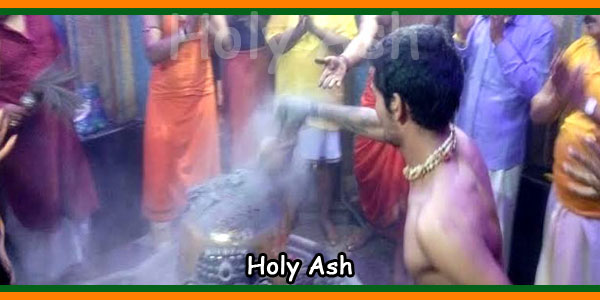The ashes of any burned object are not considered as sacred ashes. Bhasma (sacred ash) is the ash of the homa (sacrificial fire) where the special wood is offered with ghee and other herbs as adoration to the Lord. Or the deity is worshipped by pouring ashes as abhisheka and then distributed as bhasma.
Bhasma is usually applied on the forehead. Some apply it to parts of the body such as arms, chest, etc. Some ascetics rub it all over his body. Many consume a pinch each time they receive it.

The word Bhasma means “what for which our sins are destroyed and we remember the Lord”. Bha involved bhartsanam (destroy) and sma implies smaranam (remember). Therefore, the application of bhasma means the destruction of evil and the memory of the divine. Bhasma is called vibhuti (which means glory) because it gives glory to the one who applies it and raksha (which means a source of protection), because it protects the user from bad and bad health, by purifying.
Homa (offering oblations in the fire with sacred songs) means offering or delivering the ego and egocentric desires to the flame of knowledge or a noble and selfless cause. The ash that results from it means the purity of the spirit, which results from such actions.
Also the fire of knowledge burns oblation and wood means ignorance and inertia, respectively. The ash we apply indicates that we must burn a false identification with the body and free ourselves from the limitations of birth and death. This should not be interpreted as a dark reminder of death, but as a powerful indicator that time and the tide are waiting for no one.
Bhasma is especially associated with Lord Shiva, who applies it through his body. Shiva devotes to applying bhasma as a tripundra. When applied with a red spot in the center, the mark symbolizes Shiva-Shakti (the unit of energy and matter that creates the entire universe seen and invisible).
Tryambakam yajaamahe
Sugandhim pushtivardhanam
Urvaa rukamiva bhandhanaan
Mrytyor muksheeyamaa amrutaat
We worship Lord Shiva with three eyes that nourish and spread the fragrance in our lives, that it frees us from the chains of pain, change and death, effortlessly, like the falling of a rip brinjal from its stem.
